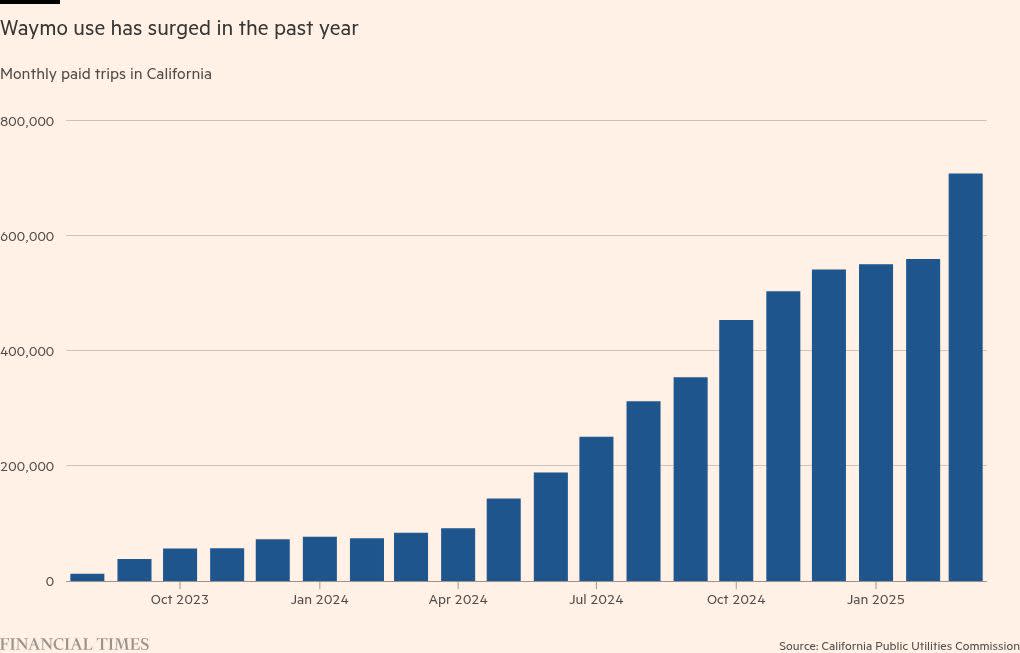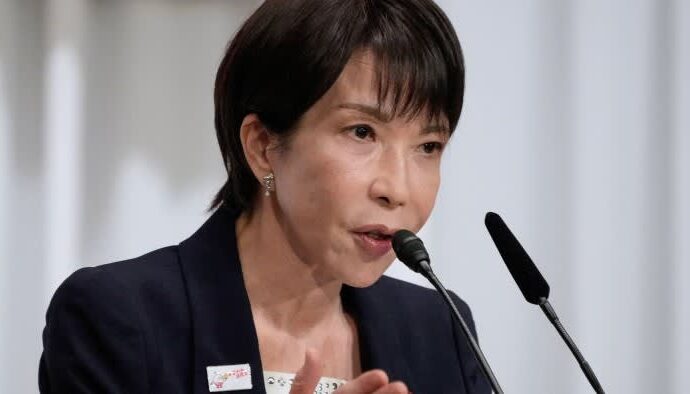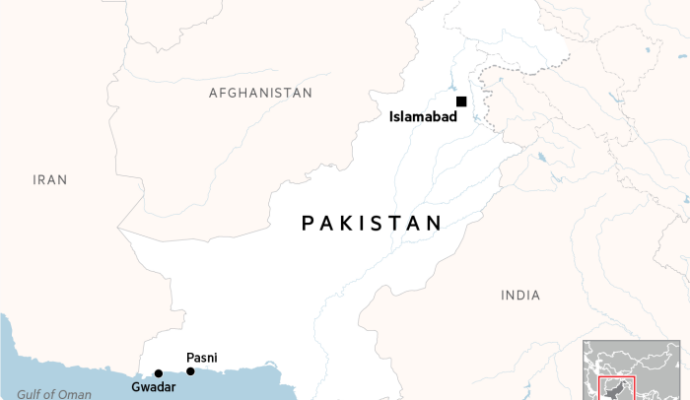Good morning. Last night we broke the news of the EU and US closing in on a trade deal based on Brussels accepting tariffs of 15 per cent. “Most member states are holding their noses and could take this,” one diplomat explained.
Today, I bring you overnight news from the EU-China summit, our economy correspondent hears from the EU’s anti-bureaucracy tsar, and our Kyiv correspondent explains Volodymyr Zelenskyy’s spiralling autocracy scandal.
The FT is on the lookout for Europe’s best start-up hubs that help to turn great ideas into big businesses. Click here to nominate or enter.
Code red
Ursula von der Leyen has warned Xi Jinping that the EU-China relationship is at “an inflection point”, demanding “real solutions” to long-standing complaints — or risk ties becoming unsustainable.
Context: The European Commission president and EU Council president António Costa are meeting the Chinese leader in Beijing today for a summit marking 50 years of diplomatic relations.
“As our co-operation has deepened, so have the imbalances. We have reached an inflection point,” von der Leyen told Xi at the start of their meetings earlier this morning. “Rebalancing our bilateral relation is no longer optional, it’s essential.”
“To be sustainable, the relations need to be mutually beneficial,” she said. “It is vital for China and Europe to acknowledge our respective concerns and come forward with real solutions.”
Brussels accuses China of unfair practices such as heavily subsidising products that are sold in Europe, and preventing EU firms from accessing the Chinese market.
“We do not always see eye to eye. Yet, we have a shared interest in pursuing constructive and stable relations,” Costa told Xi in the same meeting. “We need concrete progress on issues related to trade and economy.”
Savings
EU companies can bank €8.5bn in savings through Brussels’ proposals to slash red tape, the bloc’s simplification chief tells Paola Tamma, promising more to come.
Context: Brussels is on mission to simplify its own regulations, using so-called “omnibus” laws to cut compliance costs for businesses.
Six such laws were proposed so far, covering areas ranging from sustainable investment to defence. Together, they will achieve just over 20 per cent of the commission’s target to reduce compliance costs by €37.5bn by the end of 2027, economy commissioner Valdis Dombrovskis told the FT.
Two more omnibus laws, on digital and chemicals regulation, will land later this year.
The digital omnibus, due in November, will review landmark laws like the EU’s data protection regulation known as GDPR, the Digital Services Act and the Digital Markets Act.
“The goal of reopening the legislation in this digital area is simplification,” Dombrovskis said. “We have some experience by now, how those different pieces of legislation function, what is working, what is not working, where there are some gaps or overlaps.”
But critics say the deregulation drive threatens to undermine EU consumer protection standards or play into US demands for the EU to loosen its rules to facilitate trade negotiations with the US.
“We have been clear that we are not linking this work now with our ongoing negotiations as regards [a] possible trade agreement with the US,” Dombrovskis said.
He also pushed back on claims that the commission’s efforts were making compliance harder for companies by creating uncertainty.
“It’s something coming from the companies which are saying that European regulations, in a sense over the last years, have accumulated, have become very burdensome,” Dombrovskis said.
Chart du jour: Auto-pilot
Robotaxis have yet to arrive in Europe but their popularity — and reliability — is on the rise.
‘Shame!’
President Volodymyr Zelenskyy is facing the most serious backlash of his wartime presidency after rushing through a law that places Ukraine’s independent anti-corruption agencies under his control, writes Christopher Miller.
Context: Critics have accused Zelenskyy of an authoritarian power grab, prompting the biggest street protests since before Russia’s full-scale invasion in 2022, concern in Brussels, and widening fractures between the government and civil society.
Zelenskyy initially said it was necessary to purge Russian influence and spies inside the National Anti-Corruption Bureau (Nabu) and the Specialised Anti-Corruption Prosecutor’s Office (Sapo).
But after a swift backlash, with thousands gathering outside the president’s office over the past two days chanting “Shame!” and calling for him to retract the changes, Zelenskyy last night signalled a potential climbdown by saying he would submit a new draft law that “will empower the law enforcement system”.
“All the necessary provisions for the independence of anti-corruption institutions will be ensured,” he said.
Critics say the law, rushed through parliament with unusual speed and secrecy, resembles the infamous “dictatorship laws” from 2014 that gave pro-Russian leader Viktor Yanukovych extraordinary powers.
“To restore full and independent operations, clear and unequivocal steps are needed at the legislative level to reinstate the guarantees repealed by Parliament,” Nabu said yesterday.
What to watch today
European Central Bank deposit facility rate decision.
Now read these
Are you enjoying Europe Express? Sign up here to have it delivered straight to your inbox every workday at 7am CET and on Saturdays at noon CET. Do tell us what you think, we love to hear from you: europe.express@ft.com. Keep up with the latest European stories @FT Europe



